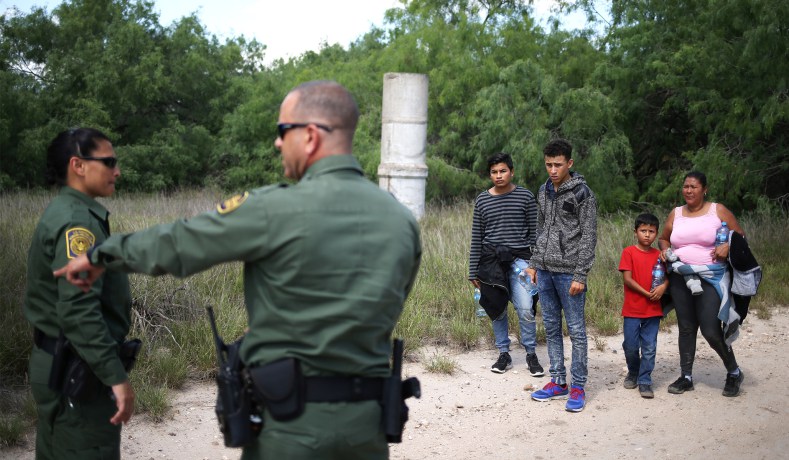
In a June post, I described a June 2018 order Issued by Judge Dana Sabraw of the United States District Court for the Southern District of California, in which he granted a motion by the plaintiffs therein for a class-wide preliminary injunction in Ms. L v. ICE. In that order, he enjoined the government from detaining members of that class without their children, subject to limited exceptions.
Last week Judge Sabraw issued a separate order granting a joint motion regarding the scope of the preliminary injunction in Ms. L. That order, issued with little fanfare, significantly affects the class of affected parents who have entered illegally or without documents at the ports of entry who:
[H]ave been, are or will be detained in immigration custody by the [Department of Homeland Security [DHS], and (2) have a minor child who is or will be separated from them by DHS and detained in [the Department of Health and Human Services' (HHS) Office of Refugee Resettlement (ORR)] custody, ORR foster care, or DHS custody absent a determination that the parent is unfit or presents a danger to the child.
In that most recent order, Judge Sabraw made clear that his preliminary injunction did not limit the authority of the government to detain adults in DHS custody.
By way of background, as I explained my Backgrounder captioned "Catch and Escape Release Hatches", the settlement agreement in Flores v. Reno (which was originally signed in 1997) has recently been read to create a presumption in favor of the release of all alien minors, even those alien minors who arrive with their parents. Under that agreement, DHS can only detain unaccompanied alien children (UACs) for 20 days before releasing them to HHS, which places the minors in foster care or shelter situations until they locate a sponsor.
In his order, Judge Sabraw stated, when DHS detains a Ms. L class member with his or her child in a family detention facility, and the child has the ability to assert rights under the Flores settlement agreement to be released from custody or transferred to a so-called "licensed program" under Flores, the preliminary injunction and implementing orders in Ms. L allow DHS to require class members to choose one of two options:
First, the parent can choose to remain in DHS custody with his or her child, "subject to any eligibility for release under existing laws and policies", waiving on behalf of the child the assertion of rights under Flores.
Second, and alternatively, the parent could waive the right not to be separated from his or her child under the preliminary injunction in Ms. L, and assert on behalf of the child "any such right under the Flores Settlement Agreement for the child to be released from custody or transferred to a 'licensed program'", in which case the child would, with the parent's consent, be separated from the parent "consistent with the Court's orders". As Judge Sabraw held: "In implementing this release or transfer, the government could transfer the child to HHS custody for placement and to be otherwise treated as an unaccompanied child."
Notably, the judge held, if a parent were presented with these two options and chose neither one, DHS could detain the family together, and the parent "will be deemed to have temporarily waived the child's release rights" under Flores until the parent "makes an affirmative, knowing, and voluntary decision as to whether" that parent would waive the child's rights under Flores. Under the judge's order, both the parent and the child could continue to have the right to challenge the legality of detention "under any constitutional or legal provisions that may apply."
Pursuant to that order, parents would retain the right under that order to reconsider any waiver of their children's rights under Flores or the injunction in Ms. L after such waiver is made, but the parties were unable to agree on whether there are any circumstances were a waiver could not be reconsidered, and were directed to meet and confer and state their positions by August 23, 2018.
Given this order, the "catch and release dilemma" that I described in the June 29, 2018, post would not arise: Parents could either choose to be separated from their children to allow them to proceed under Flores, or choose to have their children remain with them, in DHS family detention. The most fascinating aspect of this order is the fact that a waiver of Flores by parents is the fallback option, not the exception, for their children. It will be interesting to see whether Judge Dolly Gee, who is overseeing the Flores settlement agreement, issues yet another order in that matter in response to Judge Sabraw's latest order in Ms. L.
